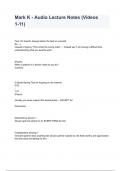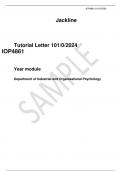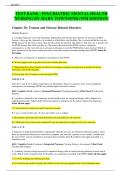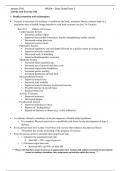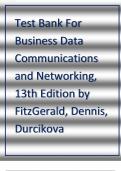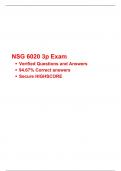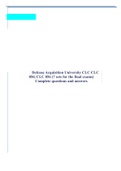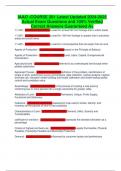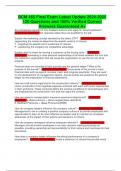Exam (elaborations)
Test Bank for Basic and Applied Concepts of Blood Banking and Transfusion Practices 5th Edition by Howard
- Course
- Exam Elaborations
- Institution
- Alliant International University
Test Bank for Basic and Applied Concepts of Blood Banking and Transfusion Practices 5th Edition by Howard
[Show more]




